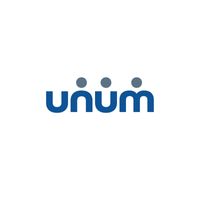How to leverage group risk benefits to support people with cancer returning to work
Cancer is the most common claim for all Unum Group Risk products.
In fact, cancer was the top reason for claims across Unum’s critical illness, group life and group income protection (GIP) policies over the past five years, accounting for 69% of critical illness, 39% of life claims, and 30% of GIP claims in 2023.
According to Macmillan, there are currently 3 million people living with cancer in the UK, and this number is projected to rise to 4 million by 2030.
But, at the same time, cancer survival rates have doubled over the past 50 years, with 50% of cancer patients now surviving for 10 or more years.
This means we are seeing more and more people survive cancer and choose to remain in the workforce.
To support these employees, careful and thoughtful management is essential.
However, research from Unum found that there is a gap between what is needed and what employers are offering, with 70% of employees with cancer saying they could have returned to work sooner with greater support from their employer.
By providing better return-to-work support, such as access to cancer specialists, mental health resources, and rehabilitation professionals, businesses can facilitate the seamless transition of employees back into the workforce.
Relationship building and training
There is no single way for businesses to support an employee through their cancer journey.
Of course, in employment law, cancer is viewed as a disability, meaning that – among other things – employees with a cancer diagnosis can request reasonable adaptations to their hours, workload, role, or ask for additional equipment.
Different cancers will have different limiting effects requiring specific disability adjustments, such as special chairs, text-to-speech equipment, or more frequent breaks for food or rest.
By establishing an open dialogue with employees, employers and line manager can understand what support is needed, and training managers and HR teams to handle conversations sensitively can help to provide the right support.
Resources such as Reframe offer free webinars for HR staff and line managers, guiding them through sensitive conversations about cancer in the workplace.
Utilising vocational rehabilitation support
Businesses covered by GIP will have access to vocational rehabilitation support - a vital service when working to support employees with cancer.
At Unum, vocational rehabilitation consultants go beyond the claim, facilitating a gradual return to work; dedicated contacts work collaboratively with HR, line managers, and employees to set up staged introductions, identify appropriate initial tasks and suitable adjustments, and monitor and review progress.
By helping to create personalised and graduated return-to-work plans, vocational rehabilitation consultants reduce ‘rebound’ absences - when employees aren’t quite ready to return to work and their symptoms recur.
The goal is not just to get employees back to work, but to help them to stay well so they can remain in work with the necessary support.
Addressing emotional impact and mental health
Eight out of ten (82%) people with cancer fear it will return, or worry they will not feel like their ‘old self’, go through depression, feel pressure to ‘get back to normal’, or feel lonely or isolated. These are among the hardest challenges post-treatment.
Other symptoms can be more generalised - whether from the cancer itself or from major treatments - and might include adapting to surgical changes, fatigue, and the emotional impact of living with cancer.
This is where value-added services from Group Risk products can help.
Health and wellbeing programs that focus on holistic health and wellness - such as Help@hand from Unum - include access to services, such as nutritional advice and unlimited mental health support, helping employees feel happy, healthy and confident in their return to the workplace.
Likewise, EAPs and concierge support services can provide emotional and psychological support for employees, as well as their families and colleagues.
Support beyond GIP
Group critical illness and group life providers can also offer valuable help and resources for employees and line managers.
For instance, since 2016, Unum has partnered with Reframe Cancer to provide comprehensive support for employees affected by cancer - such as tailored clinical, emotional, and practical ongoing assistance.
By building comprehensive employee benefits packages and signposting to high-quality support services through group risk insurances, employers can make a meaningful difference in the lives of employees with cancer, ensuring they receive the support they need.
Supplied by REBA Associate Member, Unum
Helping the working world thrive throughout life’s moments’








